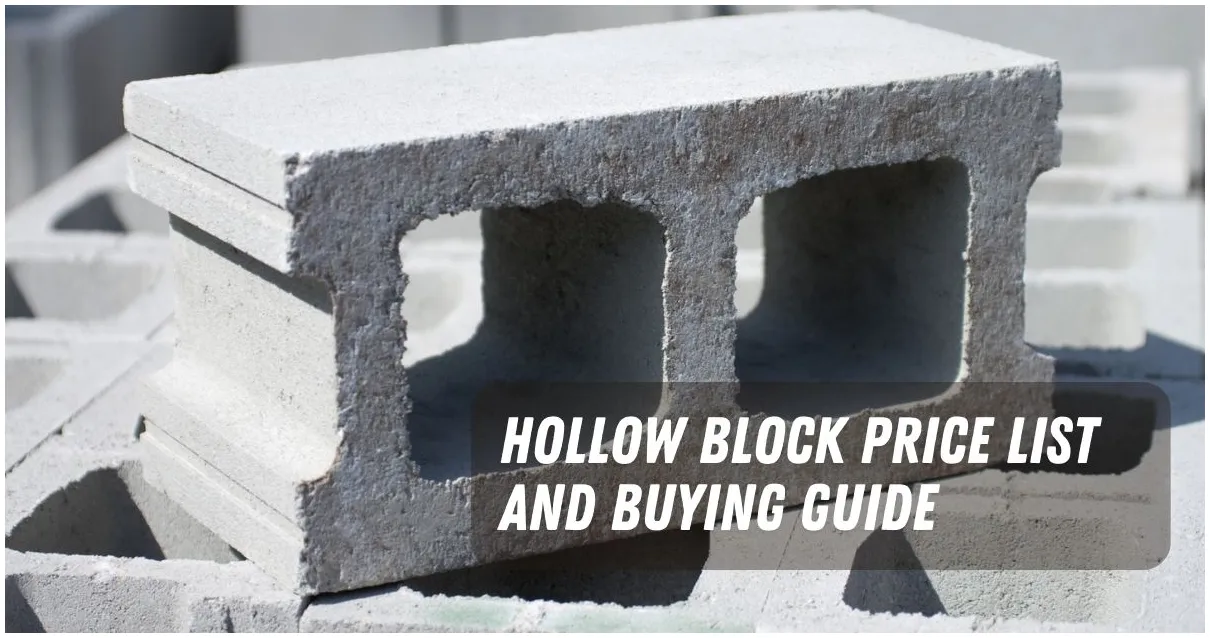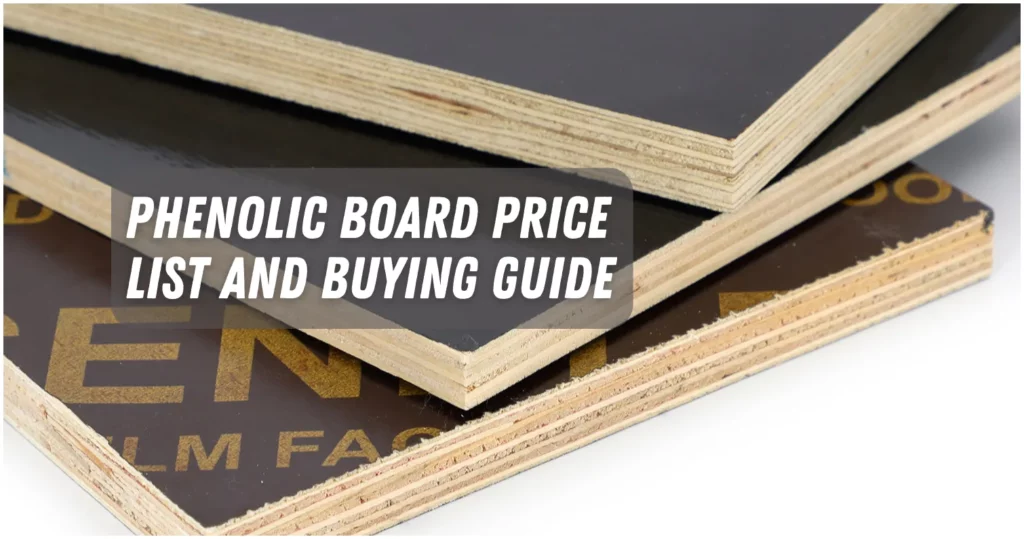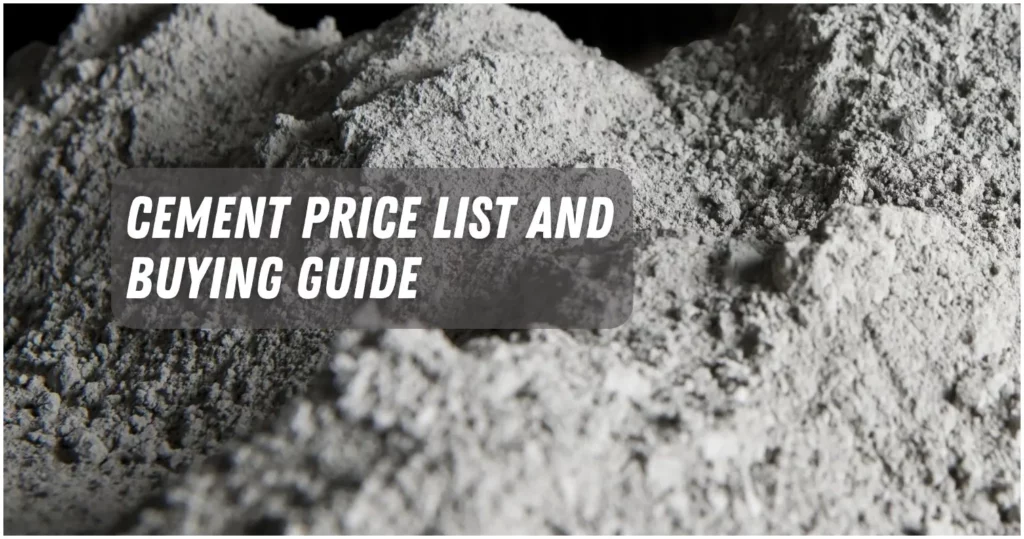Hollow concrete blocks are often used to build walls, fences, and other structures because they are lighter and cheaper in price than solid blocks.
Hollow blocks cost between ₱12.00 and ₱16.00 each for regular blocks and between ₱21.00 and ₱35.00 each for 450 PSI blocks.
In this article we will tell you everything you need to know about hollow blocks price in Philippines.
Including what they are used for, how big they are, and what you need to know before you buy them.
What Is Hollow Blocks

Hollow blocks are rectangular blocks with holes in them. They are also called concrete hollow blocks (CHB) or breeze blocks.
They are made by mixing Portland cement, sand, and other materials.
Because they are easy to move, carry, and put together, these blocks are often used in building.
They can be painted or treated with different colors and textures to make different designs.
Since hollow blocks are bigger than regular bricks, they can be put together faster.
There are standard sizes for CHB, so building projects are always the same.
Uses of Hollow Blocks
Hollow blocks are used in building for many different reasons, such as:
- Load-bearing walls: Hollow blocks provide structural support for both the outside and inside of walls. They can hold big weights and withstand bad weather.
- Facades and curtain walls: Hollow blocks can be used to make artistic facades or protective layers on top of structural walls. This makes the building look better and keeps it warmer.
- Prefabricated panels: Hollow blocks can be put together to make prefabricated panels, which make building faster and more efficient and reduce the need for more concrete and steel.
- Partition walls: Hollow blocks are often used to split different rooms or areas inside a building. This gives people more privacy, reduces noise, and saves energy.
- Fire-safe walls: Because hollow blocks don’t catch fire, they can be used to build walls around lifts, stairwells, and other places where fire safety is very important.
- Boundary fences: Hollow blocks mark the edges of lands and give them security, privacy, and a nice look.
- Retaining walls: Hollow blocks can be used to build retaining walls, which hold back dirt or water to stop erosion and make terraces or other features for landscaping.
Overall, hollow blocks are versatile, strong, and long-lasting, which makes them an important part of many masonry building projects.
Type of Hollow Blocks
There are different types of hollow blocks available in the market, such as:
Base Concrete Hollow Block

This is the most popular type of hollow block. It is strong, doesn’t shrink or break, and lasts a long time. It is the same size and shape all over and has a smooth surface.
Rough Surface Hollow Block

This type of hollow block looks rough or crushed, which gives a wall or fence structure and character. It goes well with patterns that are rustic or natural.
Colored Concrete Hollow Blocks

This type of hollow block has a colored coating on one or both sides that makes it more beautiful. It works great for walls and building decorations.
Decorative Hollow block

This type of hollow block has a pattern or design on one or both sides that makes a wall or fence look more interesting and stylish. It works well for patterns that are modern or artistic.
Hollow Block Size
Hollow block size Philippines vary but there are standard sizes that are commonly used in the country. These are:
- CHB 4: 40 cm (length) x 20 cm (width) x 4 inches (thickness)
- CHB 5: 40 cm (length) x 20 cm (width) x 5 inches (thickness)
- CHB 6: 40 cm (length) x 20 cm (width) x 6 inches (thickness)
- CHB 8: 40 cm (length) x 20 cm (width) x 8 inches (thickness)
The size of the hollow block affects its strength, weight, cost, and appearance. Generally, larger blocks are stronger but heavier and more expensive than smaller ones. Smaller blocks are lighter but weaker and cheaper than larger ones.
Hollow Block Price List in Philippines
The price of hollow blocks depends on several factors, such as type, size, quality, location of the supplier and market condition.
| Strength | Dimension | Price |
|---|---|---|
| Ordinary | 40 cm x 20 cm x 4 inches | ₱12.00 |
| 40 cm x 20 cm x 5 inches | ₱13.00 | |
| 40 cm x 20 cm x 6 inches | ₱16.00 | |
| 450 PSI | 40 cm x 20 cm x 4 inches | ₱21.00 |
| 40 cm x 20 cm x 5 inches | ₱23.00 | |
| 40 cm x 20 cm x 6 inches | ₱25.00 | |
| 40 cm x 20 cm x 8 inches | ₱35.00 |
Beside that, the price of a concrete hollow block machine ranges from around ₱30,000 for a manual, mobile type to around ₱10,000,000 for an industrial, automatic type.
Hollow Block Advantages and Disadvantages

Hollow blocks have many benefits, such as:
- They are lightweight and easy to move, install, and handle.
- They don’t let fire or sound through, keep heat in, and can’t be broken.
- They can stand up to earthquakes, last a long time, don’t cause waste, and use energy and resources efficiently.
- They are versatile and can be used for many different uses and designs.
- They are cheap and can save time and money in building.
But hollow blocks also have some drawbacks, such as:
- They are not as strong as solid blocks and may need strengthening or extra support.
- They can get cracks or other damage from wetness or temperature changes.
- They may be different in quality or consistency based on who makes or sells them.
- They may not be easy to find or get to in some areas or places.
Thing You Should Know about Hollow Block
Before buying hollow blocks, you should know some important things, such as:
- Why do people in the Philippines use hollow blocks?
In the Philippines, hollow blocks are used because they are strong, last a long time, and are inexpensive. - What is an empty block called by another name?
A hollow block is also called a hollow brick, breeze block, or concrete hollow block (CHB). - Are concrete blocks that are hollow strong?
Solid concrete blocks are stronger than hollow ones, but not as strong. Depending on the weight, they may need to be made stronger. - Which is better: solid or hollow blocks?
Hollow blocks are better for building because they are lighter, better at insulating, and use less energy. Solid blocks are more durable and also look better. - Can the base be made with hollow blocks?
With reinforcement, hollow blocks can be used for the base, but solid blocks are better for strength and stability.


